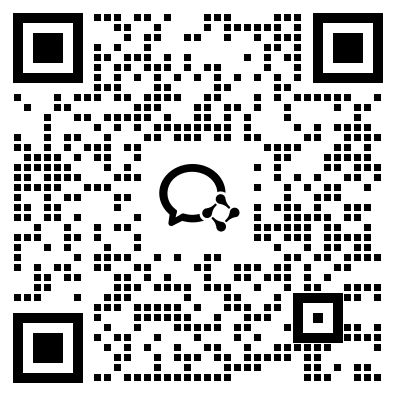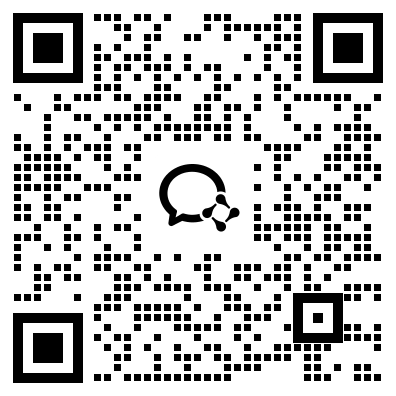考研201英语(一)在线题库每日一练(一百一十一)
摘要:以下是希赛网给大家分享考研201英语(一)在线题库每日一练,希望通过刷题可以帮助大家巩固重要知识点,对知识点查漏补缺,祝愿大家能顺利通过考试!
本文提供考研201英语(一)在线题库每日一练,以下为具体内容
1、A deal is a deal-except, apparently, when Entergy is involved. The company, a major energy supplier in New England, provoked justified outrage in Vermont last week when it announced it was reneging on a longstanding commitment to abide by the strict nuclear regulations. Instead, the company has done precisely what it had long promised it would not challenge the constitutionality of Vermont's rules in the federal court, as part of a desperate effort to keep its Vermont Yankee nuclear power plant running. It's a stunning move. The conflict has been surfacing since 2002, when the corporation bought Vermont's only nuclear power plant, an aging reactor in Vernon. As a condition of receiving state approval for the sale, the company agreed to seek permission from state regulators to operate past 2012. In 2006, the state went a step further, requiring that any extension of the plant's license be subject to Vermont legislature's approval. Then, too, the company went along. Either Entergy never really intended to live by those commitments, or it simply didn't foresee what would happen next. A string of accidents, including the partial collapse of a cooling tower in 2007 and the discovery of an underground pipe system leakage, raised serious questions about both Vermont Yankee's safety and Entergy's management—especially after the company made misleading statements about the pipe. Enraged by Entergy's behavior, the Vermont Senate voted 26 to 4 last year against allowing an extension. Now the company is suddenly claiming that the 2002 agreement is invalid because of the 2006 legislation, and that only the federal government has regulatory power over nuclear issues. The legal issues in the case are obscure: whereas the Supreme Court has ruled that states do have some regulatory authority over nuclear power, legal scholars say that Vermont case will offer a precedent-setting test of how far those powers extend. Certainly, there are valid concerns about the patchwork regulations that could result if every state sets its own rules. But had Entergy kept its word, that debate would be beside the point. The company seems to have concluded that its reputation in Vermont is already so damaged that it has noting left to lose by going to war with the state. But there should be consequences. Permission to run a nuclear plant is a public trust. Entergy runs 11 other reactors in the United States, including Pilgrim Nuclear station in Plymouth. Pledging to run Pilgrim safely, the company has applied for federal permission to keep it open for another 20 years. But as the Nuclear Regulatory Commission (NRC) reviews the company's application, it should keep it mind what promises from Entergy are worth. 1.The phrase “reneging on”(Line 2. para.1) is closest in meaning to( ).2.By entering into the 2002 agreement, Entergy intended to ( ). 3.According to Paragraph 4, Entergy seems to have problems with it ( ). 4.In the author's view, the Vermont case will test ( ). 5.It can be inferred from the last paragraph that( ).
问题1
A、condemning
B、reaffirming
C、dishonoring
D、securing
问题2
A、obtain protection from Vermont regulators
B、seek favor from the federal legislature
C、acquire an extension of its business license
D、get permission to purchase a power plant
问题3
A、managerial practices
B、technical innovativeness
C、financial goals
D、business vision
问题4
A、Entergy's capacity to fulfill all its promises
B、the mature of states' patchwork regulations
C、the federal authority over nuclear issues
D、the limits of states' power over nuclear issues
问题5
A、Entergy's business elsewhere might be affected
B、the authority of the NRC will be defied
C、Entergy will withdraw its Plymouth application
D、Vermont's reputation might be damaged
2、In the idealized version of how science is done, facts about the world are waiting to be observed and collected by objective researchers who use the scientific method to carry out their work. But in the everyday practice of science, discovery frequently follows an ambiguous and complicated route. We aim to be objective, but we cannot escape the context of our unique life experience. Prior knowledge and interest influence what we experience, what we think our experiences mean, and the subsequent actions we take. Opportunities for misinterpretation, error, and self-deception abound. Consequently, discovery claims should be thought of as protoscience. Similar to newly staked mining claims, they are full of potential. But it takes collective scrutiny and acceptance to transform a discovery claim into a mature discovery. This is the credibility process, through which the individual researcher's me, here, now becomes the community's anyone, anywhere, anytime. Objective knowledge is the goal, not the starting point. Once a discovery claim becomes public, the discoverer receives intellectual credit. But, unlike with mining claims, the community takes control of what happens next. Within the complex social structure of the scientific community, researchers make discoveries; editors and reviewers act as gatekeepers by controlling the publication process; other scientists use the new finding to suit their own purposes; and finally, the public (including other scientists) receives the new discovery and possibly accompanying technology. As a discovery claim works it through the community, the interaction and confrontation between shared and competing beliefs about the science and the technology involved transforms an individual's discovery claim into the community's credible discovery. Two paradoxes exist throughout this credibility process. First, scientific work tends to focus on some aspect of prevailing Knowledge that is viewed as incomplete or incorrect. Little reward accompanies duplication and confirmation of what is already known and believed. The goal is new-search, not re-search. Not surprisingly, newly published discovery claims and credible discoveries that appear to be important and convincing will always be open to challenge and potential modification or refutation by future researchers. Second, novelty itself frequently provokes disbelief. Nobel Laureate and physiologist Albert Azent-Gyorgyi once described discovery as “seeing what everybody has seen and thinking what nobody has thought.” But thinking what nobody else has thought and telling others what they have missed may not change their views. Sometimes years are required for truly novel discovery claims to be accepted and appreciated. In the end, credibility “happens” to a discovery claim—a process that corresponds to what philosopher Annette Baier has described as the commons of the mind. “We reason together, challenge, revise, and complete each other's reasoning and each other's conceptions of reason.” 1.According to the first paragraph, the process of discovery is characterized by its( ).2.It can be inferred from Paragraph 2 that credibility process requires ( ). 3.Paragraph 3 shows that a discovery claim becomes credible after it ( ). 4.Albert Szent-Gyorgyi would most likely agree that ( ). 5.Which of the following would be the best title of the test?
问题1
A、uncertainty and complexity
B、misconception and deceptiveness
C、logicality and objectivity
D、systematicness and regularity
问题2
A、strict inspection
B、shared efforts
C、individual wisdom
D、persistent innovation
问题3
A、has attracted the attention of the general public
B、has been examined by the scientific community
C、has received recognition from editors and reviewers
D、has been frequently quoted by peer scientists
问题4
A、scientific claims will survive challenges
B、discoveries today inspire future research
C、efforts to make discoveries are justified
D、scientific work calls for a critical mind
问题5
A、Novelty as an Engine of Scientific Development.
B、Collective Scrutiny in Scientific Discovery.
C、Evolution of Credibility in Doing Science.
D、Challenge to Credibility at the Gate to Science.
3、An old saying has it that half of all advertising budgets are wasted—the trouble is, no one knows which half. In the internet age, at least in theory, this fraction can be much reduced. By watching what people search for, click on and say online, companies can aim “behavioural” ads at those most likely to buy.In the past couple of weeks a quarrel has illustrated the value to advertisers of such fine-grained information: Should advertisers assume that people are happy to be tracked and sent behavioural ads? Or should they have explicit permission?In December 2010 America's Federal Trade Commission (FTC) proposed adding a “do not track” (DNT) option to internet browsers, so that users could tell advertisers that they did not want to be followed. Microsoft's Internet Explorer and Apple's Safari both offer DNT; Google's Chrome is due to do so this year. In February the FTC and the Digital Advertising Alliance (DAA) agreed that the industry would get cracking on responding to DNT requests.On May 31st Microsoft set off the row. It said that Internet Explorer 10, the version due to appear with windows 8, would have DNT as a default.Advertisers are horrified. Human nature being what it is, most people stick with default settings. Few switch DNT on now, but if tracking is off it will stay off. Bob Liodice, the chief executive of the Association of National Advertisers, says consumers will be worse off if the industry cannot collect information about their preferences. People will not get fewer ads, he says. “They'll get less meaningful, less targeted ads.”It is not yet clear how advertisers will respond. Getting a DNT signal does not oblige anyone to stop tracking, although some companies have promised to do so. Unable to tell whether someone really objects to behavioural ads or whether they are sticking with Microsoft's default, some may ignore a DNT signal and press on anyway.Also unclear is why Microsoft has gone it alone. After all, it has an ad business too, which it says will comply with DNT requests, though it is still working out how. If it is trying to upset Google, which relies almost wholly on advertising, it has chosen an indirect method: There is no guarantee that DNT by default will become the norm. DNT does not seem an obviously huge selling point for windows 8—though the firm has compared some of its other products favourably with Google's on that count before. Brendon Lynch, Microsoft's chief privacy officer, blogged: “We believe consumers should have more control.” Could it really be that simple?1.It is suggested in Paragraph 1 that “behavioural” ads help advertisers to( ).2.“The industry” (Line 4, Para.3) refers to ( ). 3.Bob Liodice holds that setting DNT as a default( ).4.Which of the following is true according to Paragraph 6?5.The author's attitude towards what Brendon Lynch said in his blog is one of( ).
问题1
A、ease competition among themselves
B、lower their operational costs
C、avoid complaints from consumers
D、provide better online services
问题2
A、online advertisers
B、e-commerce conductors
C、digital information analysis
D、internet browser developers
问题3
A、may cut the number of junk ads
B、fails to affect the ad industry
C、will not benefit consumers
D、goes against human nature
问题4
A、DNT may not serve its intended purpose.
B、Advertisers are willing to implement DNT.
C、DNT is losing its popularity among consumers.
D、Advertisers are obliged to offer behavioural ads.
问题5
A、indulgence
B、understanding
C、appreciation
D、skepticism
4、As many people hit middle age, they often start to notice that their memory and mental clarity are not what they used to be. We suddenly can't remember(1)we put the keys just a moment ago, or an old acquaintance's name, or the name of an old band we used to love. As the brain(2), we refer to these occurrences as “senior moments.”(3)seemingly innocent, this loss of mental focus can potentially have a(n)(4)impact on our professional, social, and personal(5).Neuroscientists, experts who study the nervous system, are increasingly showing that there's actually a lot that can be done. It (6)out that the brain needs exercise in much the same way our muscles do, and the right mental (7)can significantly improve our basic cognitive(8). Thinking is essentially a (9) of making connections in the brain. To a certain extent, our ability to (10) in making the connections that drive intelligence is inherited. (11), because these connections are made through effort and practice, scientists believe that intelligence can expand and fluctuate (12) mental effort.Now, a new Web-based company has taken it a step (13) and developed the first “brain training program” designed to actually help people improve and regain their mental (14).The Web-based program (15) you to systematically improve your memory and attention skills. The program keeps (16) of your progress and provides detailed feedback (17) your performance and improvement. Most importantly, it (18) modifies and enhances the games you play to (19) on the strengths you are developing—much like a(n) (20) exercise routine requires you to increase resistance and vary your muscle use.
问题1
A、why
B、when
C、that
D、where
问题2
A、improves
B、fades
C、collapses
D、recovers
问题3
A、While
B、Unless
C、Once
D、If
问题4
A、uneven
B、limited
C、damaging
D、obscure
问题5
A、relationship
B、environment
C、wellbeing
D、outlook
问题6
A、turns
B、finds
C、points
D、figures
问题7
A、responses
B、roundabouts
C、workouts
D、associations
问题8
A、genre
B、criterion
C、circumstances
D、functions
问题9
A、channel
B、process
C、sequence
D、condition
问题10
A、excel
B、feature
C、persist
D、believe
问题11
A、However
B、Moreover
C、Otherwise
D、Therefore
问题12
A、instead of
B、regardless of
C、apart from
D、according to
问题13
A、back
B、further
C、aside
D、around
问题14
A、framework
B、stability
C、sharpness
D、flexibility
问题15
A、hurries
B、reminds
C、forces
D、allows
问题16
A、order
B、track
C、hold
D、pace
问题17
A、to
B、on
C、for
D、with
问题18
A、constantly
B、habitually
C、irregularly
D、unusually
问题19
A、carry
B、put
C、build
D、take
问题20
A、risky
B、familiar
C、idle
D、effective
5、In order to “change lives for the better” and reduce “dependency,” George Osborne, Chancellor of the Exchequer, introduced the “upfront work search” scheme. Only if the jobless arrive at the jobcentre with a CV, register for online job search, and start looking for work will they be eligible for benefit—and then they should report weekly rather than fortnightly. What could be more reasonable?More apparent reasonableness followed. There will now be a seven-day wait for the jobseeker's allowance. “Those first few days should be spent looking for work, not looking to sign on,” he claimed. “We’re doing these things because we know they help people stay off benefits and help those on benefits get into work faster.” Help? Really? On first hearing, this was the socially concerned chancellor, trying to change lives for the better, complete with “reforms” to an obviously indulgent system that demands too little effort from the newly unemployed to find work, and subsidises laziness. What motivated him, we were to understand, was his zeal for “fundamental fairness”—protecting the taxpayer, controlling spending and ensuring that only the most deserving claimants received their benefits.Losing a job is hurting: you don't skip down to the jobcentre with a song in your heart, delighted at the prospect of doubling your income from the generous state. It is financially terrifying, psychologically embarrassing and you know that support is minimal and extraordinarily hard to get. You are now not wanted; you are now excluded from the work environment that offers purpose and structure in your life. Worse, the crucial income to feed yourself and your family and pay the bills has disappeared. Ask anyone newly unemployed what they want and the answer is always: a job.But in Osbomeland, your first instinct is to fall into dependency—permanent dependency if you can get it—supported by a state only too ready to indulge your falsehood. It is as though 20 years of ever tougher reforms of the job search and benefit administration system never happened. The principle of British welfare is no longer that you can insure yourself against the risk of unemployment and receive unconditional payments if the disaster happens. Even the very phrase “jobseeker's allowance” is about redefining the unemployed as a “jobseeker” who had no fundamental right to a benefit he or she has earned through making national insurance contributions. Instead, the claimant receives a time-limited “allowance,” conditional on actively seeking a job; no entitlement and no insurance, at $71.70 a week, one of the least generous in the EU. 1.George Osborne's scheme was intended to( ).2.The phrase “to sign on”(Paragraph 2) most probably means ( ). 3.What prompted the chancellor to develop his scheme?4.According to Paragraph 3, being unemployed makes one feel ( ). 5.To which of the following would the author most probably agree?
问题1
A、motivate the unemployed to report voluntarily
B、provide the unemployed with easier access to benefits
C、encourage jobseekers, active engagement in job seeking
D、guarantee jobseekers' legitimate right to benefits
问题2
A、to register for an allowance from the government
B、to accept the government's restrictions on the allowance
C、to check on the availability of jobs at the jobcentre
D、to attend a governmental job-training program
问题3
A、A desire to secure a better life for all.
B、An eagerness to protect the unemployed.
C、An urge to be generous to the claimants.
D、A passion to ensure fairness for taxpayers.
问题4
A、insulted
B、uneasy
C、enraged
D、guilty
问题5
A、Unemployment benefits should not be made conditional.
B、The British welfare system indulges jobseekers' laziness.
C、The jobseekers' allowance has met their actual needs.
D、Osborne's reforms will reduce the risk of unemployment.
点击查看【完整】试卷>>延伸阅读

考研微信公众号

考研备考资料免费领取
去领取
- 3
- 0
- 0
 专注在线职业教育25年
专注在线职业教育25年









 扫描二维码
扫描二维码
 扫描二维码
扫描二维码








